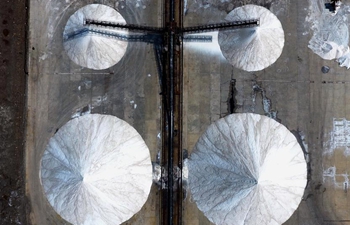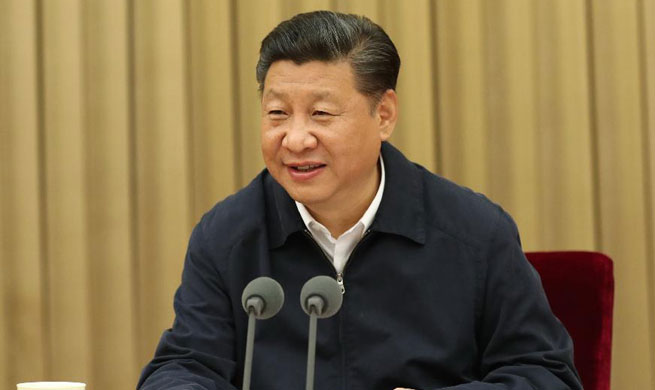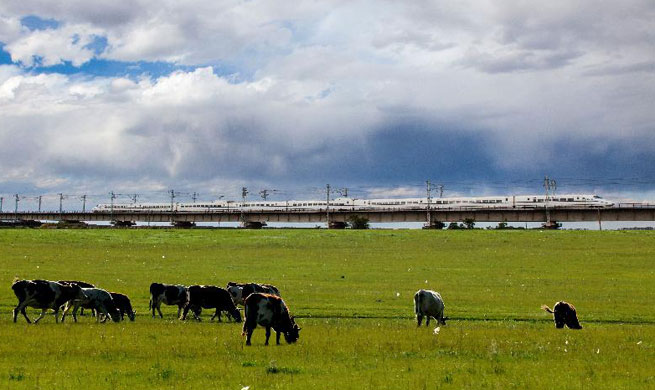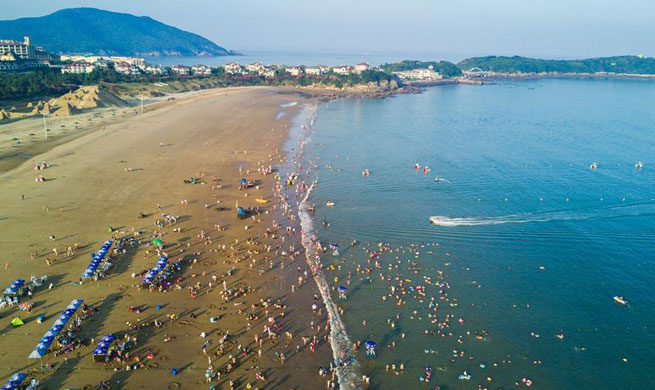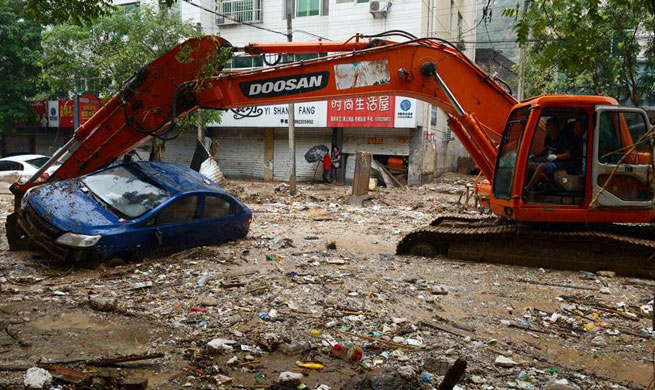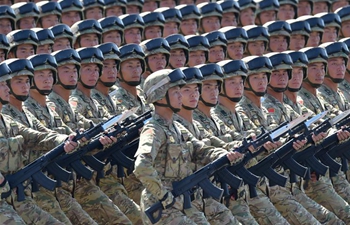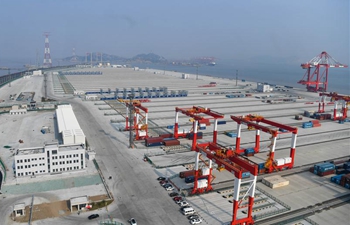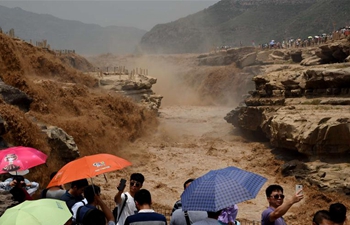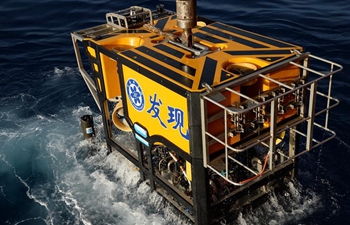by Hummam Sheikh Ali
ALEPPO, Syria, July 27 (Xinhua) -- The only thing slicing through the huge devastation and destruction in the al-Kalasseh industrial zone, is the loud noise of the textile factories, whose annoying sound is the only sign of life that started beating again in that area, the oldest industrial zones in the northern province of Aleppo.
Between now and six months ago when the army wrested full control over the city of Aleppo, not much has changed in terms of the landscape of the city, whose former-rebel held part in the east is still largely in ruins.
But inside the scenes of destruction, something significant has changed, a sign that life is stronger than death.
Al-Kalasseh is the oldest industrial zone in Aleppo, and of course took a beating due to the conflict in that city, as it's located in the eastern part of Aleppo, where the rebels had stayed for five years before they evacuated to other rebel-held areas in northern Syria in December of 2016.
The industrialists and factories' owners have started returning to revive their businesses, in most cases from scratch, despite the major obstacles they are facing, which are yet to be resolved.
Muhammad Mousa left his textile factory and the 50-years-old weaving machines to an unknown destiny and has returned to fix what needed to be fixed to regain, not only his livelihood, but his life.
"During the crisis I have left my factory and returned when the army retook this area," he told Xinhua, making an effort to hear amid the deafening sound of the machines' spinning.
Still, Mousa pointed out to the major problems they face, mainly the lack of electricity, as Aleppo largely relies on generators, with the major electricity stations out of service due to the war, which took a toll on all aspect of life, and the infrastructure was no exception.
"The production is half of what it used to be due to the lack of electricity as we are using the generators, which is not good for factories, causing the production to be weak," he said.
The 56-year-old man said he is happy he returned to his factory even though he has a difficulty in his hearing as he has spent most of his life operating his old machines.
Al-Kalasseh in particular and Aleppo, in general, are famous in the textile industry, but that zone has several industries, including the plastic one.
Muhammad Lababidi, a plastic factory owner, said he was back again after closing his factory for years, but he is also complaining about the lack of electricity, saying the Aleppo industrialists are still unable to compete with other industrial zones in other parts of the country.
"Following the rebels' evacuation and the entry of the Syrian army to this area, we returned and started the rehabilitation process of the factory and made maintenance to the machines and started the production wheel," he said.
He added that "we are suffering from the electricity problem as we are using the generators and the price of diesel is high, which negatively reflected on the cost of production in comparison with other industrial zones in Syria such as in Hasyeh and Adra near the Damascus as well as in Tartus city, so we are unable to compete in the local market," he said.
But despite those difficulties, those industrialists have proven to be tough in the face of the challenges, as no one could have imagined that someone is capable of bringing back to life something from the realm of the dead.
In the rubble-strewn streets of al-Kalasseh, workers, all covered with dust, are working their hearts out to fix, work and produce.
The horrible scenes of devastation that has befallen their area couldn't discourage them or keep them away, as once the area was retrieved by the Syrian army, they were so quick to return and start from scratch.
They expressed their spirits as stressing that the people of Aleppo "were born to work hard and be productive" and that nothing will stop them from building their lives back from zero.
Those industrialists and workers are working on their own, as no official effort has been established, at least on a wide scale, to rehabilitate their areas, with the government providing security to those areas as the first step as most of the areas in eastern Aleppo need a huge effort for restoration and reconstruction.
The factories that have so far returned are in the buildings that sustained damages, but not fully destroyed, with those industrialists promising success if they could get the basics.
Nadim Atrash, president of Al-Kalasseh's industrial committee, told Xinhua that the industrialists of Aleppo are ready to bring back the production wheel again if they could be provided with help.
He said that in al-Kalasseh there had been 1,376 factories before the war erupted in Syria in 2011, adding that 160 factories have so far returned since last December.
"Those who have recently returned to their factories are gradually working, not in full swing, but in accordance with their limited resources," he said.
Atrash also highlighted the problems facing the industrialists, saying that "we have many problems. The first is the lack of capital in the hands of the industrialists, and the second is the lack of electricity as the entire industrial zone has no electricity and is working on the generators and diesel."
"So those who have money can use the generators, while the rest are sitting helplessly and even those who are using the generators cannot compete in the local market," he said.
The man also pointed out to a third problem, which is the lack of working hands, as most of the young generation in Syria has either fled the country or joined the army.
Still, the man said that there are another 200 factories ready to operate again, if the electricity issue is resolved.
"We are emerging from under the rubble and despite the difficulties, we are determined to rise again and make Aleppo the first industrial city in Syria again," he said.
Al-Kalasseh is one of 14 industrial cities in Aleppo, with most of these areas have been destroyed by the war, causing huge losses.







